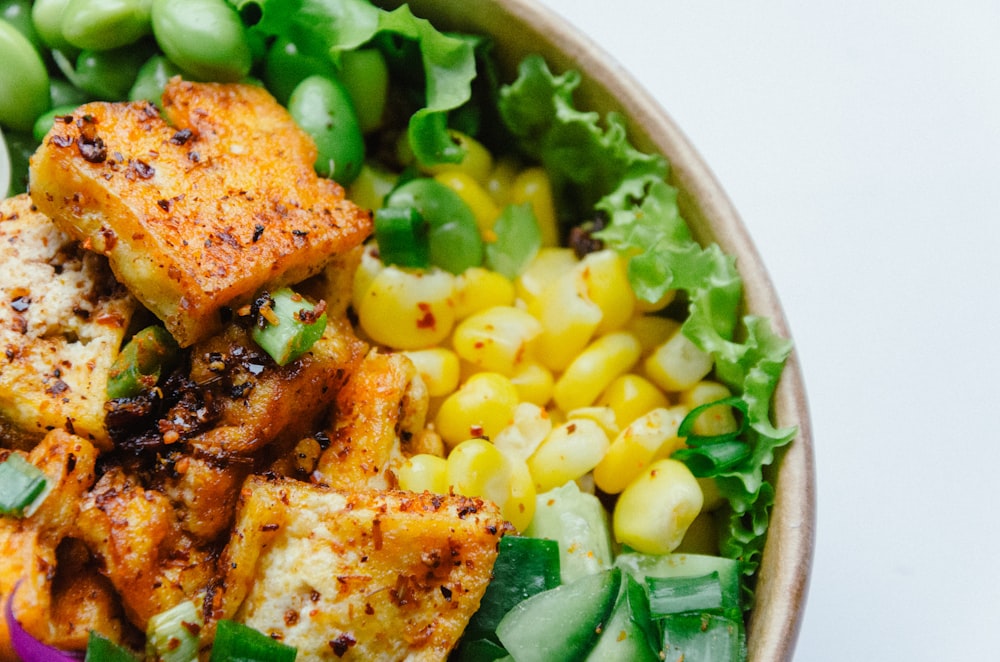The Rise Of Plant Based Diet
A plant-based diet is a way of eating that focuses on whole, minimally processed foods derived from plants, such as fruits, vegetables, grains, legumes, nuts, and seeds. Here are some of the health benefits of following a plant-based diet:

- Reduced risk of heart disease: Plant-based diets are associated with a lower risk of heart disease. This is because they are typically low in saturated and trans fats, and high in fiber, antioxidants, and other nutrients that help to protect the heart.
- Improved digestion: Plant-based diets are high in fiber, which helps to promote healthy digestion and prevent constipation. Fiber also helps to feed the beneficial bacteria in the gut, which can have a positive impact on overall health.
- Increased energy levels: A plant-based diet can help to improve energy levels, as it is rich in nutrients that are essential for energy production, such as complex carbohydrates, iron, and B vitamins.
- Lower risk of certain cancers: Plant-based diets have been linked to a lower risk of certain types of cancer, such as colorectal cancer. This may be due to the high levels of fiber, antioxidants, and other nutrients found in plant-based foods.
- Improved weight management: Plant-based diets are typically lower in calories and higher in fiber than diets that include meat and dairy products. This can help to promote weight loss and weight management.
In summary, a plant-based diet can offer many health benefits, from reducing the risk of heart disease and certain cancers, to improving digestion, increasing energy levels, and promoting weight management.
Plant-based Recipe's
Here are some delicious plant-based recipes that you might enjoy:

- Lentil Shepherd's Pie: This hearty dish features a rich lentil and vegetable filling topped with mashed sweet potatoes. It's perfect for a cozy weeknight dinner.
- Tofu Scramble: This vegan twist on scrambled eggs is made with crumbled tofu and seasoned with turmeric, garlic, and nutritional yeast. Serve it for breakfast, lunch, or dinner!
- Chickpea Salad Sandwich: This classic sandwich gets a plant-based makeover with a filling made from mashed chickpeas, vegan mayo, and a variety of veggies and spices. It's perfect for a quick and easy lunch.
- Chocolate Avocado Pudding: This rich and creamy dessert is made with ripe avocados, cocoa powder, and a touch of maple syrup. It's a healthy and satisfying way to indulge your sweet tooth.
- Spicy Peanut Noodles: This easy and flavorful dish features a spicy peanut sauce served over noodles and a mix of veggies. You can add tofu, tempeh, or your favorite plant-based protein for extra protein.
- Roasted Vegetable Quinoa Bowl: This bowl is filled with roasted veggies, quinoa, avocado, and a tangy tahini dressing. It's a perfect meal prep option for a healthy and satisfying lunch or dinner.
- Vegan Mushroom Stroganoff: This plant-based take on the classic comfort food is made with a creamy cashew sauce, sautéed mushrooms, and served over pasta.
These are just a few ideas to get you started. With plant-based cooking, the possibilities are endless!
Transition to a plant-based diet
Transitioning to a plant-based diet can be a gradual process, and it's important to be patient and kind to yourself along the way. Here are some tips and advice to help make the transition smoother:

- Start gradually: You don't have to switch to a fully plant-based diet overnight. Start by incorporating more plant-based meals into your diet each week, and gradually reduce your intake of animal products.
- Plan your meals: Meal planning can help you to stay on track and ensure that you are getting all of the nutrients you need. Look for plant-based recipes online or in cookbooks, and plan your meals for the week ahead of time.
- Find plant-based substitutes for meat and dairy: There are many plant-based substitutes for meat and dairy products, such as tofu, tempeh, seitan, and plant-based milks. Experiment with these ingredients to find ones that you enjoy.
- Experiment with new foods: Trying new foods can help to keep your plant-based diet interesting and varied. Visit your local farmers' market or health food store to discover new fruits, vegetables, and grains that you may not have tried before.
- Learn to cook: Cooking your own plant-based meals can be fun and rewarding. Look for cooking classes or online tutorials to learn new techniques and recipes.
- Don't be afraid to eat out: Eating out at restaurants or at social events can be challenging when you're following a plant-based diet. Look for vegetarian or vegan options on the menu, and don't be afraid to ask your server for modifications to a dish.
- Focus on the benefits: Remember why you chose to transition to a plant-based diet, whether it's for health, environmental, or ethical reasons. Focusing on the benefits can help to keep you motivated and inspired.
Remember, transitioning to a plant-based diet is a journey, and it's important to be kind to yourself along the way. Celebrate your progress and don't get discouraged if you slip up or make mistakes. Just keep moving forward and enjoy the many benefits of a plant-based diet!
The environmental impact of a plant-based diet

A plant-based diet can have a significant positive impact on the environment, in several ways:
- Reduced greenhouse gas emissions: Animal agriculture is a major contributor to greenhouse gas emissions, including methane and nitrous oxide. These gases are major contributors to climate change. By choosing a plant-based diet, individuals can reduce their carbon footprint and help mitigate the effects of climate change.
- Reduced land use: Animal agriculture requires large amounts of land for grazing, feed production, and animal housing. This can lead to deforestation, soil degradation, and habitat destruction. A plant-based diet requires much less land and can help to conserve natural habitats and biodiversity.
- Water conservation: Animal agriculture is also a major consumer of water resources. It takes many gallons of water to produce a single pound of meat, while plant-based foods require much less water to produce. Choosing a plant-based diet can help to conserve water resources and reduce the strain on our freshwater systems.
- Reduced pollution: Animal agriculture is a major source of water and air pollution, including nitrate runoff and ammonia emissions. These pollutants can harm aquatic and terrestrial ecosystems and pose a risk to human health. A plant-based diet can help to reduce these sources of pollution and promote cleaner environments.
- Conservation of energy resources: Animal agriculture requires large amounts of energy for feed production, transportation, and processing. A plant-based diet requires much less energy to produce and transport, making it a more sustainable choice for the long term.
Overall, a plant-based diet can have a significant positive impact on the environment, helping to reduce greenhouse gas emissions, conserve natural resources, and promote cleaner and healthier ecosystems. By choosing plant-based foods, individuals can play a part in creating a more sustainable and resilient future for all.



